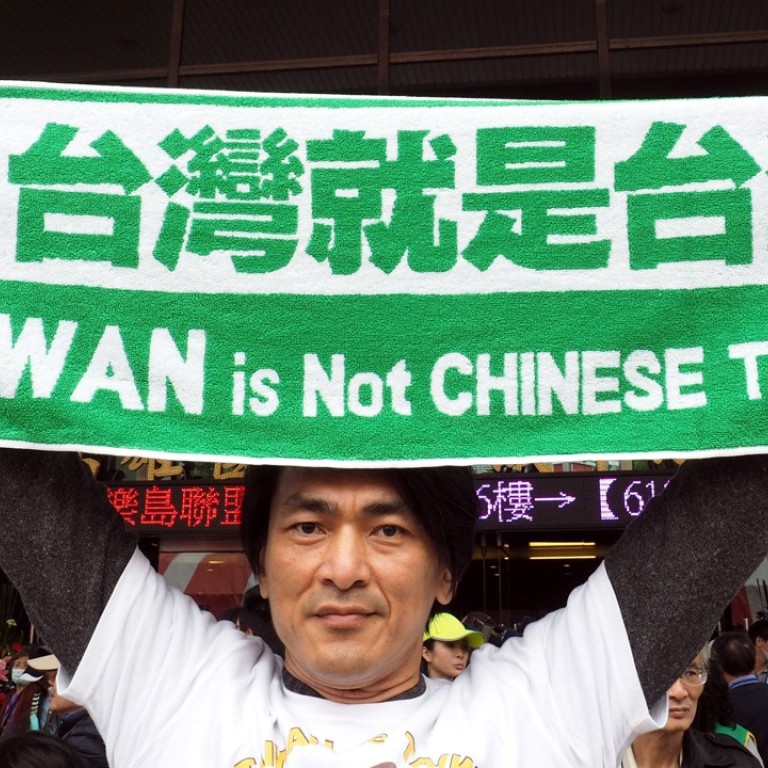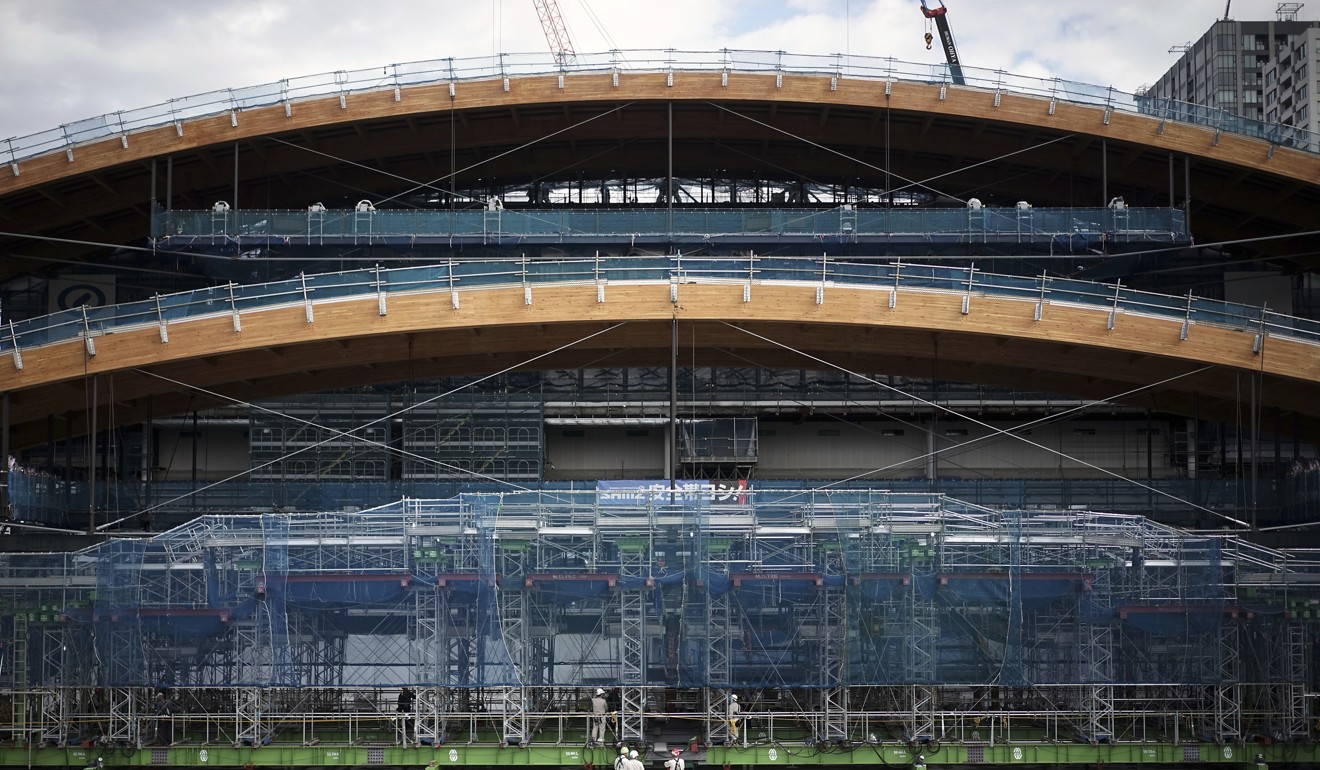
Risking Beijing’s wrath, Taiwan to vote on removing ‘China’ from name of its 2020 Olympic team
- A November 24 referendum will ask whether Taiwan’s international athletic teams should drop the ‘Chinese Taipei’ title
- The campaign has won the support of Chi Cheng, Taiwan’s first female Olympic medallist
Taiwanese are to vote this month over whether the self-ruled island should compete in the next Summer Olympics under the name “Taiwan,” in a highly controversial referendum that would not only provoke Beijing but also put the island’s government in a political dilemma if passed.
The referendum asks whether Taiwan should compete in the 2020 Games in Tokyo and other international sporting events under that name, rather than “Chinese Taipei” – a title that has been used since 1981.
The referendum is among 10 such votes being held alongside the island’s local government elections on November 24, but is the only one so far condemned by Beijing as a prelude of the island’s attempt to declare independence and change the cross-strait status quo – a move the mainland has said would lead to its attack.
‘Prepare for war’, Xi Jinping tells military region that monitors South China Sea, Taiwan
The mainland has considered Taiwan a breakaway province since the end of a civil war that saw the defeated Nationalist troops fleeing to the island in 1949 and setting up an interim government. It took over from the Nationalists as the sole representative of China after the United Nations ousted Taipei to admit Beijing in 1971.
Since then, Beijing has disputed the island’s use of its official Republic of China title in international events and succeeded in making the International Olympic Committee alter the island’s ROC team name to “Chinese Taipei” after the Lausanne agreement in Switzerland in 1981.
“We want to change the so-called Olympic model that has set restriction on our attending international sporting events for a long time,” said Yoshi Liu, spokesman of Team Taiwan Campaign for the 2020 Tokyo Olympics, referring to what his group views as unfair treatment by the IOC in requiring the island to take part in global sporting events as “Chinese Taipei” instead of other names like Republic of China or Taiwan.
Citing the fact that the island used “Taiwan” or “Formosa” in the Olympics in 1956, 1960, 1964 and 1968, Liu said the campaign was aimed at reverting to a former title.
“We want to change our name back to Taiwan,” Liu said, adding that the referendum would allow eligible voters to have their say and decide whether they wanted to accept what appeared to be a humiliating title – one that gives others the impression that the island was part of China.
Watch: China is ‘seriously challenging’ peace in Taiwan, President Tsai says
Last month, Taiwan’s Central Election Commission announced that the campaign for the name change, which started in January, has support from 430,000 people who signed the petition to hold the referendum – almost twice the 281,745 required.
While Liu admitted that most of the supporters were from the pro-independence camp, he said the effort had also won support from a number of politically neutral bigwigs like Chi Cheng, Taiwan’s first female Olympic medallist, who co-led the campaign.
“After more than three decades of democratisation in Taiwan, most people here have come to accept ‘Taiwan’ as our title, and by continuing to use ‘Chinese-Taipei’ to attend the Olympic event, it does not truly reflect the fact that we represent Taiwan rather than China,” Chi said.
Taiwan ‘will consider’ hosting US warships on Taiping Island for regional security
An angry Beijing warned last month that Taiwan would “swallow its own bitter fruit” and could be sacrificing its athletes’ chances to compete in the Games.
Beijing’s International Olympic Committee said in mid-October that the mainland “will not sit by if the vote is passed”. It said the IOC had already resolved in May that it would not allow any name change for Taiwan and had informed the island’s International Olympic Committee about the resolution.
The mainland’s defence ministry sees the vote as a prelude for the island to declare independence.
“The Taiwan issue is related to China’s sovereignty and territorial integrity and touches upon China’s core interests,” the mainland’s Defence Minister Wei Fenghe said at a forum in Beijing last month.
“If anyone wants to split Taiwan from China, the Chinese forces would take necessary actions at all cost to retake it,” he said.

Pro-independence supporters in Taiwan were optimistic that the referendum would pass, given the loosening of the requirements after the island’s Referendum Act was revised in December.
“With so many people signing the petition, I am confident that this referendum will be passed,” said George Chang Tsang-hung, a former chairman of the World United Formosans for Independence and ex-mayor of Tainan in southern Taiwan.
US$330 million arms sale to Taiwan will go ahead, says US Congress
Under the revised Referendum Act, if 25 per cent of the 19 million or so eligible voters choose yes, the referendum passes and the government must proceed to draw up a bill within three months to reflect the results, which would be reviewed and voted on by the parliament in its next session.
As the name change referendum does not require new legislation or a revision of existing law, the government must make plans to negotiate with the IOC over the possibility of the name change, which analysts and officials said would come to naught.
“The IOC already notified us in May that it would not allow the Chinese-Taipei Olympic Committee to change its title,” said Lin Hong-dao, chairman of the Taiwanese committee.
“The IOC will hold an executive committee meeting at the end of this month to decide whether to terminate the operation of the Chinese-Taipei committee if it concludes that the name-change referendum is a political campaign aiming at interfering the independent operation of the IOC,” he said.
Even with US help, Taiwan is losing battle to keep friends and influence
Liu, however, said the name change was far from being a political campaign for the island to declare independence and was merely a public wish for its athletes to be able to compete under the “Taiwan” name.
Su Yen-tu, an associate research fellow of law at Taiwan’s top academic institution, the Academia Sinica, said that although the government said it had no role in any of the 10 referendums, which were initiated by the public, it had to face risking anger from Beijing and criticism from the public if it failed to do anything.
Cabinet spokeswoman Kolas Yotaka said the government respected whatever the referendum result would be and would do all it could to “make sure that the rights of Taiwanese athletes taking part in international games are upheld”.
She stopped short of saying what the government would do if the island were not allowed to take part in the Olympics.

